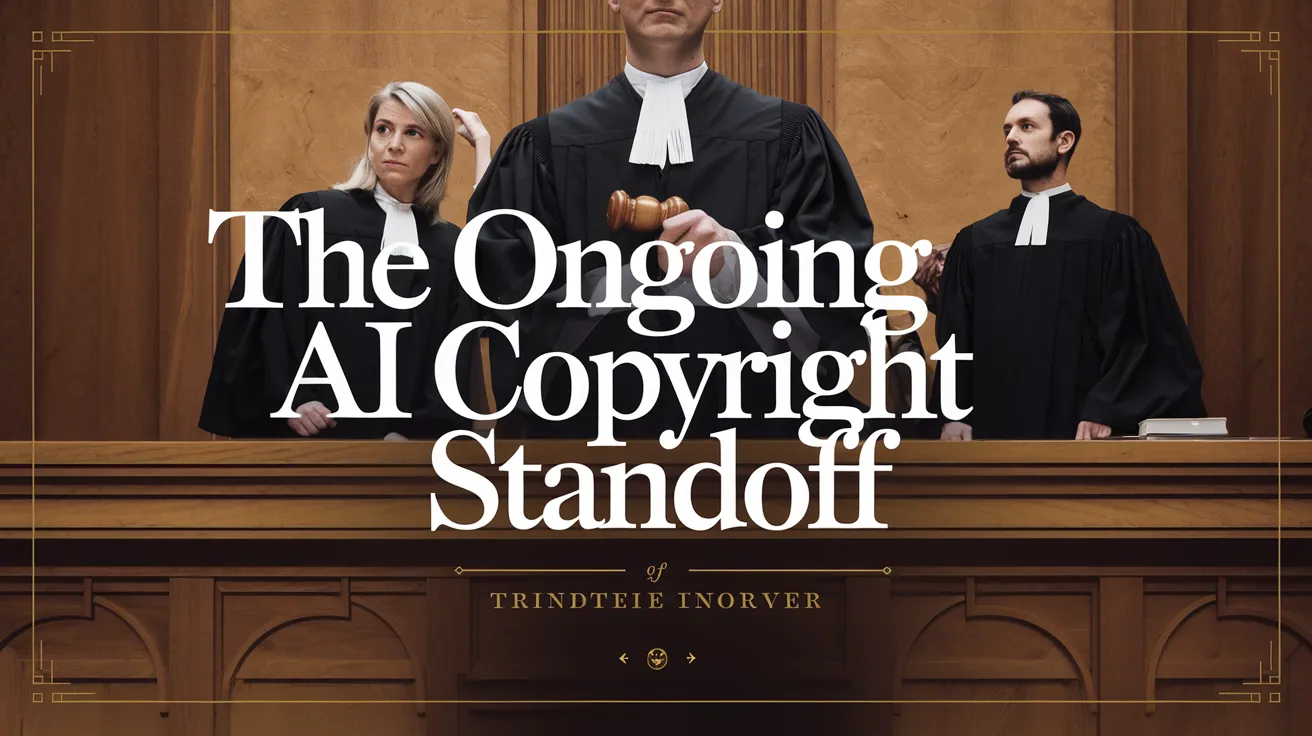The Ongoing AI Copyright Standoff

The ongoing battle over artificial intelligence (AI) and copyright is intensifying, as the issue returns to the House of Lords with seemingly no resolution in sight. This discord pits government officials against prominent figures in the creative industry, highlighting crucial concerns about jobs and creativity at its core. The lack of compromise has been notable, with support for artists opposing government positions gaining traction.
The Heart of the Dispute
At the center of this debate is the Data (Use and Access) Bill, which aims to facilitate AI developers’ access to creative content while balancing the interests of the creative industries. Specifically, the contention revolves around how to allow AI firms to utilize creative material without jeopardizing the livelihoods of those who produce it. The proposal suggests that AI developers could access all content unless copyright holders explicitly opt out, a suggestion met with resistance from around 300 members of the House of Lords.
Opponents of the bill argue that AI companies should disclose the copyrighted materials used for training their tools to facilitate proper licensing. Notable figures, such as Baroness Beeban Kidron, underscore that failing to protect creators would amount to state-sanctioned theft, endangering the UK’s £124 billion creative sector.
Opposing Perspectives
Supporters of the bill, including Sir Nick Clegg, contend that requiring permissions from all copyright holders would cripple the AI industry. They believe that fostering innovation is vital for the economy and that stringent regulations could drive investment away from the UK. This perspective seeks to strike a balance that permits creativity and technological advancement without impeding economic growth.
The division in opinions brings forth voices from across the creative spectrum, with artists like Sir Elton John and Dua Lipa vocally criticizing the current landscape. They argue that AI’s use of their works, without consent or remuneration, constitutes theft and threatens their livelihoods by enabling the rapid production of similar content. John has expressed strong criticism of governmental inaction, warning that it risks depriving future generations of opportunities and legacy.
Complexity of the Legislative Landscape
The Data Bill is stuck in legislative limbo, oscillating between the House of Lords and the House of Commons without resolution. This impasse raises concerns that if the bill is shelved, critical components regarding other societal needs, such as bereaved parents’ access to data and efficiency improvements for NHS data sharing, may also be abandoned.
Historically, AI developers gained access to vast amounts of content online with the argument that it was in the public domain. This exploitation has sparked significant backlash, encompassing both high-profile artists and rising talents who feel endangered by the rapid evolution of AI technology. For example, the recent phenomenon of AI-generated images mimicking the style of renowned studios has drawn ire from original creators, further showcasing the rift between innovation and traditional artistry.
The Path Forward?
As the debate unfolds, resolving the standoff between technological benefits and the rights of creatives remains a formidable challenge, with both industries standing firm in their positions. The dialogue surrounding copyright in the age of AI prompts essential questions about the future of creativity and compensation, emphasizing the need for a balanced approach that fosters innovation while protecting artistic integrity. The outcome of this conflict could significantly influence the landscape of both the AI and creative sectors, making it vital for all stakeholders to continue engaging in this conversation.